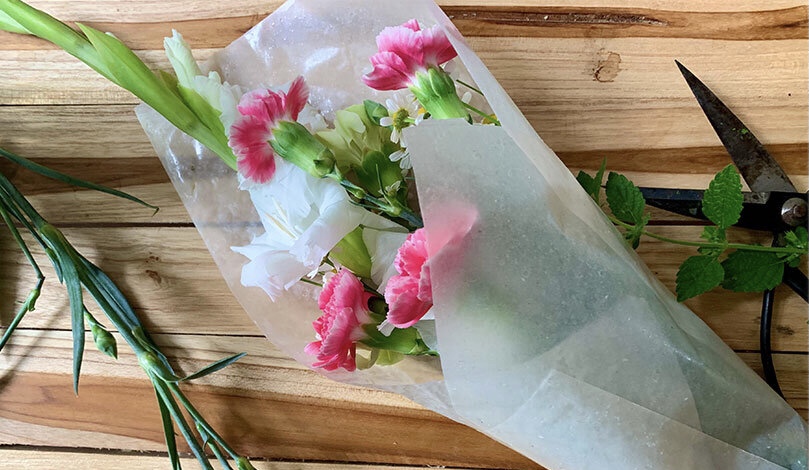
- Sustainable Planet -
- 5mins -
- 732 views
Cheers to Unplastic; an edible, compostable alternative to plastic, made from beer leftovers
UnPlastic is a functional, 100% compostable and non-plastic alternative that releases no toxins into the environment—as it is made from food industry by-products—so it will never break down into micro- or nanoplastics.
UnPlastic The (edible) Alternative to Single-Use Plastics
UnPlastic is Rotterdam-based Outlander Materials’ answer to single-use plastics: a functional, compostable and non-plastic alternative that releases no toxins. It is circular—made from food industry sources, by-products, and beer waste—and will never break down into micro- or nano-plastics. In fact it’s so safe, it’s edible! UnPlastic is high in fibre, vegan friendly, and doesn’t harm nature; even fish can eat it.
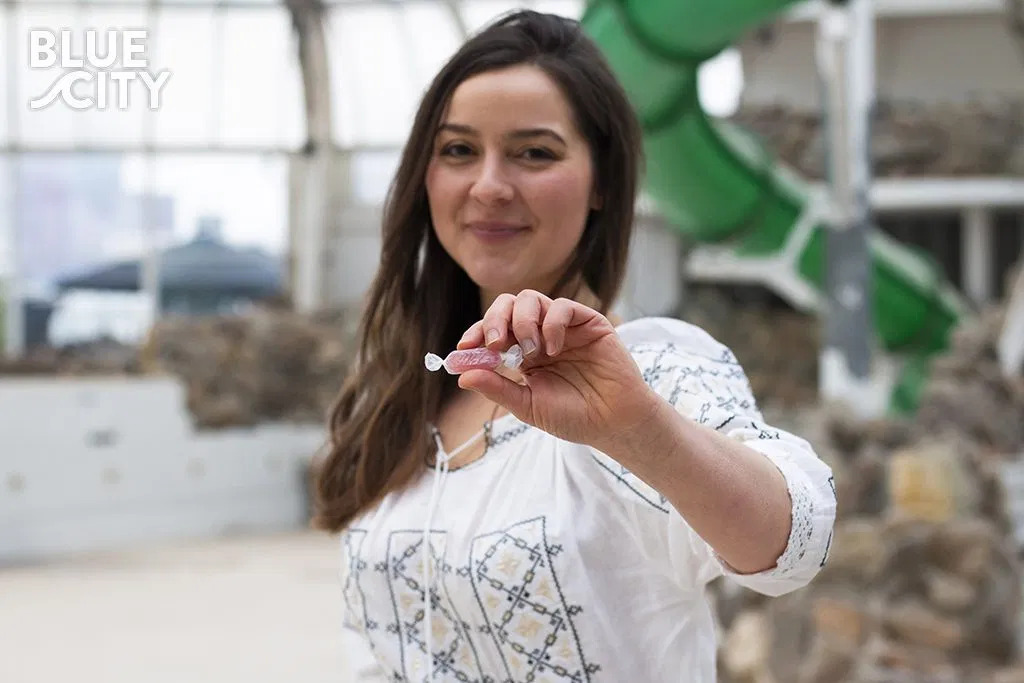
From beer to idea to UnPlastic
Lori Goff, at Rotterdam-based Outlander Materials transforms the waste stream of nearby beer brewer VET & LAZY into ‘UnPlastic’; an alternative for single use plastics. UnPlastic is functional, compostable and vegan friendly. But perhaps most importantly – it is a circular product and will never break down into micro or nanoplastics.
The idea was born a few years ago when Lori received a beer brewing kit as a birthday gift. “I was brewing beer in my kitchen and started to take a more serious look at the amount of waste produced during the beer brewing process. I thought: there’s definitely cool stuff I can make out of this.”
And so she did. She settled in BlueCity Lab, started experimenting and soon got in touch with VET & LAZY. “To create one litre of beer you need seven litres of fresh water.” she states. The remaining six litres, referred to as brewery effluent, is normally being wasted. But not on Lori’s watch. “I use the waste stream that is produced during the beer brewing process. With biotechnology, as a result, we produce a material that can be developed into a non-plastic that can function as a new alternative to plastics.”
Source: BlueCity.nl
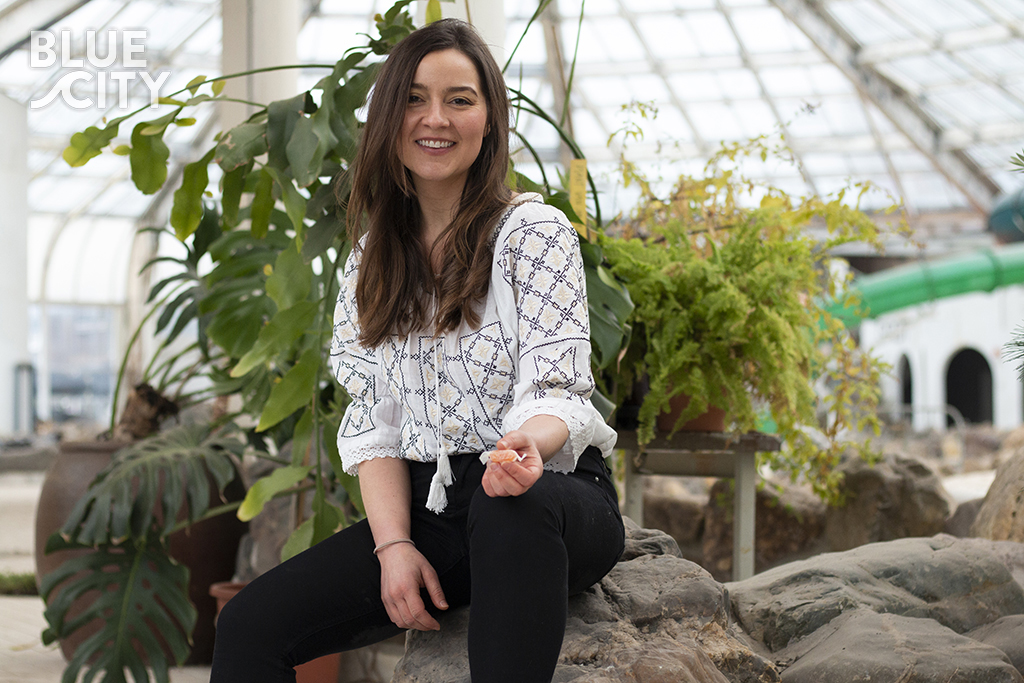
UnPlastic Features
- Biodegradable & Non-Plastic – UnPlastic biodegrades in soil and water, and never breaks down into micro- or nanoplastics. It leaves no harmful traces in the natural environment.
- Lightweight & Flexible – The material is flexible and lightweight, making it ideal for packaging products.
- Extends Shelf Life – UnPlastic has exceptional barriers against fats, oils and oxygen, extending the shelf life of products.
- Non-Toxic, Non-Allergenic & Vegan – UnPlastic is free of toxins, allergens, and animal products.
- Circular – UnPlastic can be created from already existing food production streams and waste, minimising the depletion of natural resources.
- Semi-Transparent – UnPlastic foil is semi-transparent, so consumers can see what is inside.
- Odourless – Unlike many other packaging alternatives, UnPlastic is free of odours, leaving no unintended smells or flavours.
- Can Be Made From Beer! By making UnPlastic using brewery waste, one of our favorite beverages becomes a world saviour.
Source: OutlanderMaterials.com
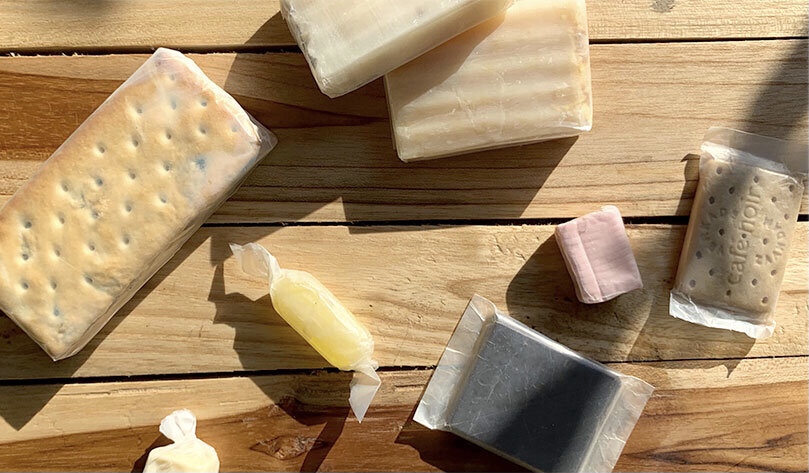
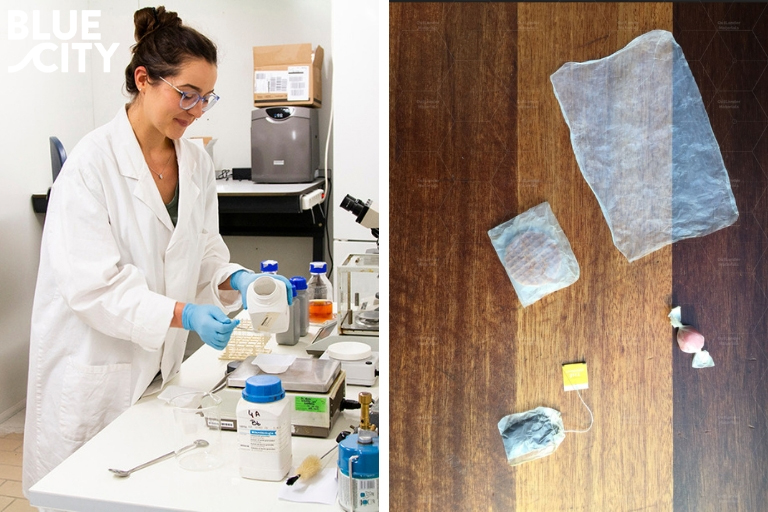
The future for unplastic
On Outlander Materials website they state:
Currently we are in the proof of concept phase. We aim to design a product that can be scaled quickly and effectively, by iteratively developing UnPlastic so it fits the market’s needs.
To achieve this we are searching for partners within packaging, manufacturing and consumer goods companies to develop the product stepwise together.
By developing it in a lean and agile manner and continuously testing, our goal is to have UnPlastic market-ready within 2 years.
Outlander Materials hope to turn materials like UnPlastic into common resources for the packaging world. After commercialisation, they say they will further develop end applications for foils and coatings within the flexible packaging market, and explore non-packaging applications for the raw products.
Another stated long-term goal is to become a technology provider. Licensing of Outlander materials would provide decentralised production of the raw product to as many companies as possible, replacing unsustainable materials and reducing waste around the globe.
Source: OutlanderMaterials.com
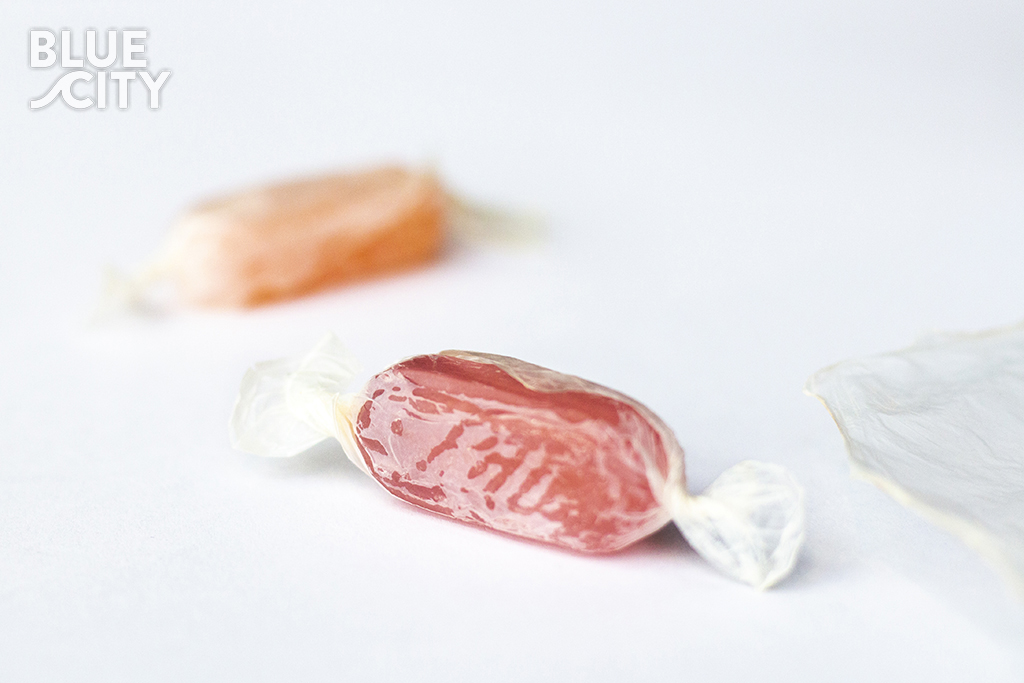

Eu single-use plastic ban now in effect
Ten single-use plastic (SUP) products that for years have blighted Europe’s beaches and clogged our waterways are now largely banned, as the EU’s Single-Use Plastics Directive of 2019 came into force on Saturday 3 July 2021.
Plastic cotton bud stems, cutlery, plates, straws, stirrers, balloon sticks and polystyrene drink and food containers cannot be sold as of Saturday. Also banned are oxo-degradable plastic bags that are marketed as biodegradable but which, according to the EU, break down into microplastics that long remain in the environment. Learn more.
